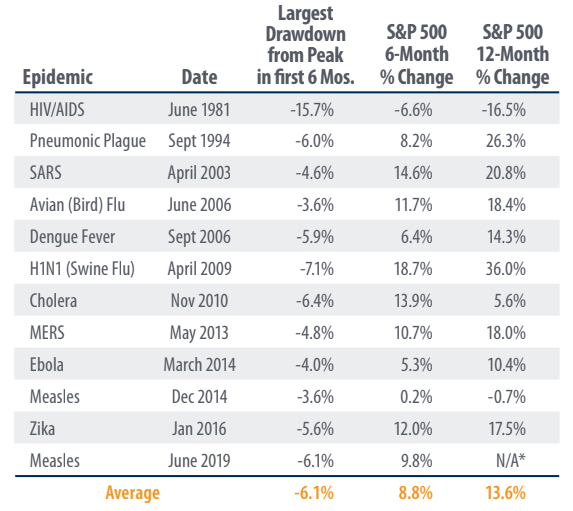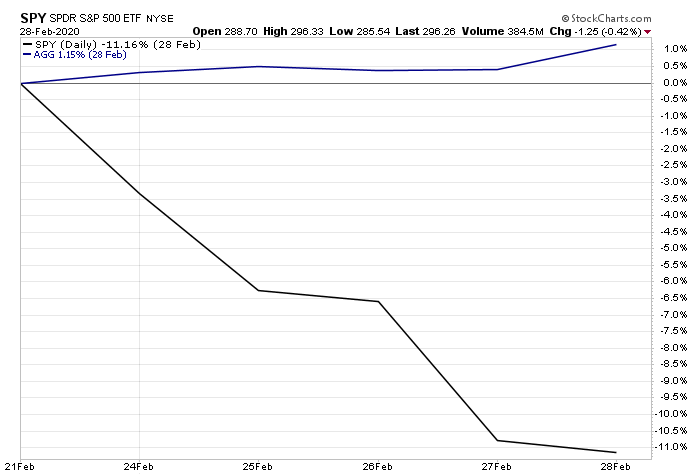Letter to Clients on Market Volatility
Year to date, 2022 is in bear market territory across multiple markets. To place that news in meaningful context, we pose two questions:
- In better times, had you boldly “pre-decided” what you would and would not do during the next bear market?
- Even if you had disciplined bear market plans in place, have you been wondering whether you should un-decide anything anyway?
Admittedly, it’s a tall order to whistle past the graveyard of recent market returns without being haunted by at least a dash of indecision. Given how unsettling many third quarter and year-to-date events and performances have been, you may struggle to un-notice the usual swarm of hand-wringing predictions and “this time it’s different” warnings about what may lie ahead.
Perhaps the scariest part isn’t necessarily the numbers themselves, as much as the lingering uncertainty of it all. When will the pain end?
Unfortunately, we can’t answer that, or guarantee the doomsday predictors aren’t right. But we can be inspired to reframe the uncertainty and understand what to make of it based on recent reflections from Dimensional Fund Advisors’ David Booth:
“You can feel empowered by uncertainty instead of beaten down by it. Without uncertainty, there would be no opportunity. … If you think about it, the life equivalent of compound interest is wisdom. Learning from the past helps you make better decisions in the future, and those lessons build on one another over time.”
In that context, let’s look back to the last time we encountered some of the inflationary and potentially recessionary economic conditions we’re currently enduring. We now have the compound wisdom to know just how wrong an infamous 1979 BusinessWeek cover story turned out to be when it declared “The Death of Equities.” Eventually, BusinessWeek rolled into Bloomberg’s publications. Forty years later, in 2019, a Bloomberg columnist described how they were “still getting grief” about it:
“Three years after [“The Death of Equities”] appeared, the stock market hit bottom and then began a remarkable resurgence. The total return on the Standard & Poor’s 500-stock index since its 1982 low, with dividends reinvested, has been nearly 7,000%. Not bad for a corpse.”
It would’ve been a bad idea to give up on capital markets in 1979. It remains a bad idea to give up on them today, especially given the compound wisdom we’ve acquired since then. Durable, well-diversified asset allocation remains our best strategy in bull and bear markets alike.
“Great investment experiences treat most portfolio decisions as non-decisions. They’ve been pre-decided, and are immune to market prices, sentiment, and human judgment. They remove agency, and thus reduce regret.”
We encourage you to recall everything we’ve already done to manage your globally diversified mix of stock, bond, and appropriate alternative investments. We’ve based your portfolio on the assumption that markets are durable over the years and frequently uncertain in real time (and yes, as we’re seeing, that can apply to bond markets, too). We can also discuss myriad bear market actions worth considering at this time, such as:
- Sticking with your well-planned portfolio mix (reallocating when appropriate for your personal financial goals).
- Periodically rebalancing to stay on target.
- Tax-loss harvesting in your taxable accounts.
- Adding even more investable assets to your portfolio while prices are low (especially if you’ve got a long time to invest).
- Taking a close look at your discretionary spending (especially if you’re in early retirement).
How else can we assist you and yours at this time? Please let us know if we can answer any questions about current market conditions, or anything else that may be on your mind.

Kirsten C. Cadden, CFP®
Associate Advisor, Warren Street Wealth Advisors
Investment Advisor Representative, Warren Street Wealth Advisors, LLC., a Registered Investment Advisor
The information presented here represents opinions and is not meant as personal or actionable advice to any individual, corporation, or other entity. Any investments discussed carry unique risks and should be carefully considered and reviewed by you and your financial professional. Nothing in this document is a solicitation to buy or sell any securities, or an attempt to furnish personal investment advice. Warren Street Wealth Advisors may own securities referenced in this document. Due to the static nature of content, securities held may change over time and current trades may be contrary to outdated publications. Form ADV available upon request 714-876-6200.



